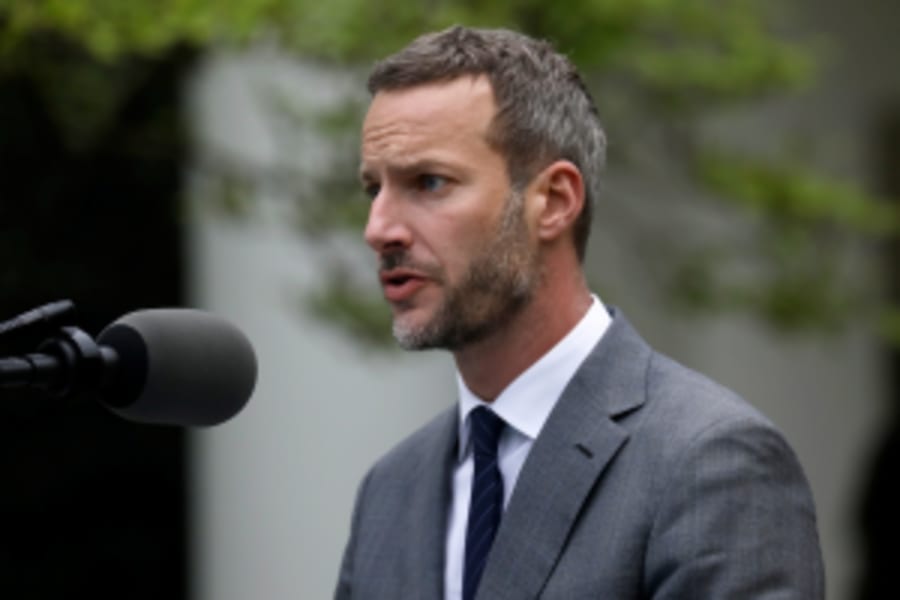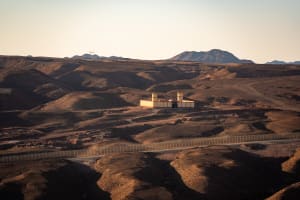A “common sense” deal — Can Donald Trump secure it?

With US President Donald Trump’s announcement yesterday that the US will be taking over Gaza to rebuild it and make it a peaceful place for the Palestinian people, a “Riviera of the Middle East” as he called it, it will be interesting to see whether this is a poker move or a real plan and how the players will respond going forward.
For years, voices at the UN have clamored for the “Palestinian cause”, insisting on a two-state solution, because in their words, the Palestinians were “occupied and oppressed” by the Israelis. It’s too early to tell just how the Trump administration will carry out this plan released on Wednesday, and most of the international community has already rejected it, but the practicality of the two-state solution has never worked.
The president is boldly offering the Palestinian people a better life.
Of course, leftists are already crying “ethnic cleansing” and accusing Trump of putting Egypt and Jordan in an impossible position, but it’s only an impossible position if they refuse to assist in deradicalizing their fellow Arab people.
This is not ethnic cleansing. It’s toxic, terror cleansing and it’s brilliant. All the protesters who’ve been shouting, “Free Palestine”, if they really cared one iota about the Palestinian people, would be rejoicing right now because freedom from the Hamas terror regime can finally be seen on the horizon.
Domestic critics are calling Trump “mad” and accusing the president of “forcibly” removing the Palestinians, possibly using US taxpayer’s money to develop the strip, and entangling US military troops in another overseas conflict. But the president didn’t say he was going to do any of that, and it wouldn’t surprise me one bit if the “deal maker” ends up getting other peace-loving players in the region on board to change more than just the landscape of the Middle East and in the process, have them fund it.
Is it “mad” to expect the Egyptian, Jordanian and Saudi Arabian regimes to step up and help their own fellow Arab people realize that it doesn’t pay to come against Israel? Is it “mad” to temporarily relocate the Palestinian people so they can come back to a place where there’s economic opportunities and freedom from Hamas?
Will there be risks involved for the Arab countries in the region? Yes, but no matter what, there are risks involved when you’re dealing with dangerous people.
Since the 1978 Camp David accords that brought peace between Egypt and Israel, the United States has provided Egypt with over $80 billion of financial and military aid. Shouldn’t we expect a return on that investment? Maybe the thought of never receiving any aid from the US again will be enough to make the Egyptians rethink Donald Trump’s first suggestion to take the Gazans into their country.
Similarly, Jordan has received over $31 billion in assistance from the US since 1949 and continues to receive almost $1.5 billion each year. Isn’t it time that the Jordanians step up as well? Perhaps the threat of letting the flow of foreign aid from America dry up would change their minds.
Will this Gaza plan mean a US military base is eventually stationed there? Will a real estate company come in and develop the strip? Nobody really knows exactly what the “Art of the Deal” author means just yet, but the jig is up--no more appeasing the anti-Israel radicals or their sympathizers. No more going back to status quo, where the terror leaders can execute the same kind of attack on Israel again, and no more two-state solutions that don’t work.
The circumstances today are like those in 1973 when Golda Meir made the infamous statement, "We will only have peace with the Arabs when they love their children more than they hate us."
The moderate Arab countries and the ones who are on the verge of normalization with Israel have an opportunity to use the same thing as Donald Trump uses in his leadership —common sense. The question is, will they use it?
-(1).jpg)
Avigayil Rivkah is a writer and speaker on the Jewish roots of the Christian faith, Jewish culture and Israel news. She is a Jewish believer in Jesus and writes at ajoyfuljewishjourney.com













